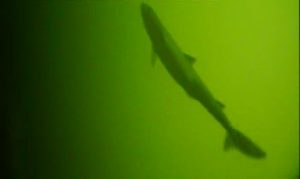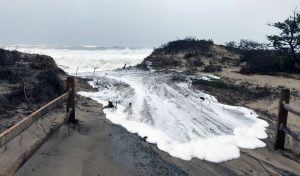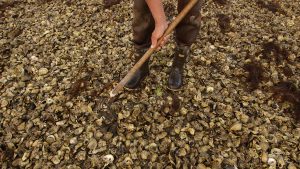Search results for: %E2%9D%A4%EF%B8%8F%20Dating%20f%C3%BCr%20mich:%20www.Dating4Me.site%20%E2%9D%A4%EF%B8%8F%20Costaki%20Economopoulos%20Dating
WHOI-R-94-006 Rankin, K.L. Transport of Juve
WHOI-R-94-006 Rankin, K.L. Transport of Juve
Read MoreHydrodynamical Modeling of a Multiple-inlet Estuary/Barrier System: Insight into Tidal Inlet Formation and Stability
Hydrodynamical Modeling of a Multiple-inlet Estuary/Barrier System: Insight into Tidal Inlet Formation and Stability Friedrichs, C.T., D.G. Aubrey, G.S. Giese, and P.E. Speer In: Aubrey, D.G. and G.S. Giese (eds.), Formation and Evolution of Multiple Tidal Inlets, Coastal and Estuarine Studies, American Geophysical Union, Washington, D.C., Vol. 44, pp. 95-112, 1993 WHOI-R-93-010
Read More2002-2004 Projects
Developmental Effects of Contaminants on Salinity Preference and Seawater Survival for Atlantic Salmon: Integrating Physiology and Behavior Stephen D. McCormick, Darren T. Lerner, and Emily Monosson, University of Massachusetts, Amherst Over the last 20 years populations of Atlantic salmon (Salmo salar) in northern New England have decreased ten-fold, resulting in their recent listing as an…
Read MoreAquaculturists
Aquaculturists Our region is home more than 300 shellfish farming operations on over 1,000 acres. Woods Hole Sea Grant extension agents meet regularly with aquaculturists and provide them with technical assistance based on research and our knowledge of local habitats and conditions. WHSG also offers professional development opportunities to help shellfish farmers improve their operations.…
Read MoreHow Do Sharks Respond to Internal Waves in the Ocean?
A new study provides insight into the behavior of small sharks when encountering a common ocean phenomenon known as internal waves. These waves play powerful and still unknown roles in the exchange of heat, energy, water properties and nutrients throughout the ocean, and can change the vertical distribution …
Read MoreOutreach: Reporting from the Heart of the Storm
The winter storms of 2018 are experiences most of New Englanders would like to forget. However, the pounding the region took through the month of March left an indelible mark on many north and east facing towns and beaches, destroying homes, buildings, and other structures, and eroding swaths of shoreline. This week the White House…
Read MoreTechnology Enables Better HAB Monitoring and Mapping
Technology Enables Better HAB Monitoring and Mapping The project’s sampling plan for the Nauset area of Cape Cod. Sept. 2018 — Nauset Marsh in Eastham, Mass. on Cape Cod serves as a “natural laboratory” for researchers working to better understand harmful algal blooms (HABs) or red tide. HABs in Nauset are caused by the phytoplankton…
Read More2006-2008 Projects
Seasonal Changes in Groundwater Flow Into the Coastal Ocean Fresh water from water tables under the land flows out into the coastal ocean from beneath the seabed, a flow known as submarine groundwater discharge (SGD). Researchers have found that such flow can have a very large impact on estuaries. Groundwater carries land-generated nitrogen compounds, plus…
Read MoreEnjoying Oysters Safely in Massachusetts
Each year, millions of fresh raw oysters are consumed in Massachusetts, most of them in the warm summer months. During that time, aquaculturists in the Commonwealth take extra precautions to safeguard their harvests from the heat, include icing oysters at the time of harvest – a step that can double or triple the weight of…
Read MoreResources for Educators & Students
Resources for Educators and Students Adaptations and Climate Change Expand How Whales Change the Climate: Video from Sustainable Human showing whales’ role in the ecosystem and climate. Port Townsend Marine Science Center- Orca Bone Atlas: This is a great resource that shows an Orca skeleton and allows you to see 3-D views of various parts of the…
Read More


